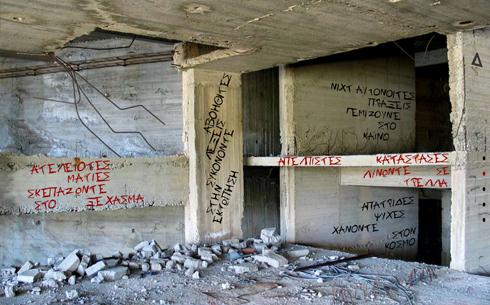Zeitgenossen
Zelko Wiener &
Ursula Hentschlaeger
Phantasma
2003 - 2006
Documentation
Phantasma is a
work about past and present in which an
”Egyptian-Greek-Roman Continuum” (E. Samsonow,
2004) has been examined. We decided to do that because of the
demands of the present time on the one hand and to approach the
”sources of our thinking” on the other (V.
Mitsopoulos-Leon, 2003).
PHANTASMA

PERIPOU
HAWLA
TAXIDI
REHLA
OROS
> OROS (gr.;
term, expression)
Oros is
an experiment involving interactive voices. Its special feature
is the possibility of creating individual sound spaces.
Interventions in the vocal material enables the construction of
a digital "speaking chorus”. The piece is based on
five sentences in four basic states: English, Greek, German or
silence. The language of each word can be chosen freely. The
shorter the representation of the individual words, the more
dynamic is the spoken text, with new visual word sounds
evolving.
TA3BIIR
KATASTASIS
HALA
